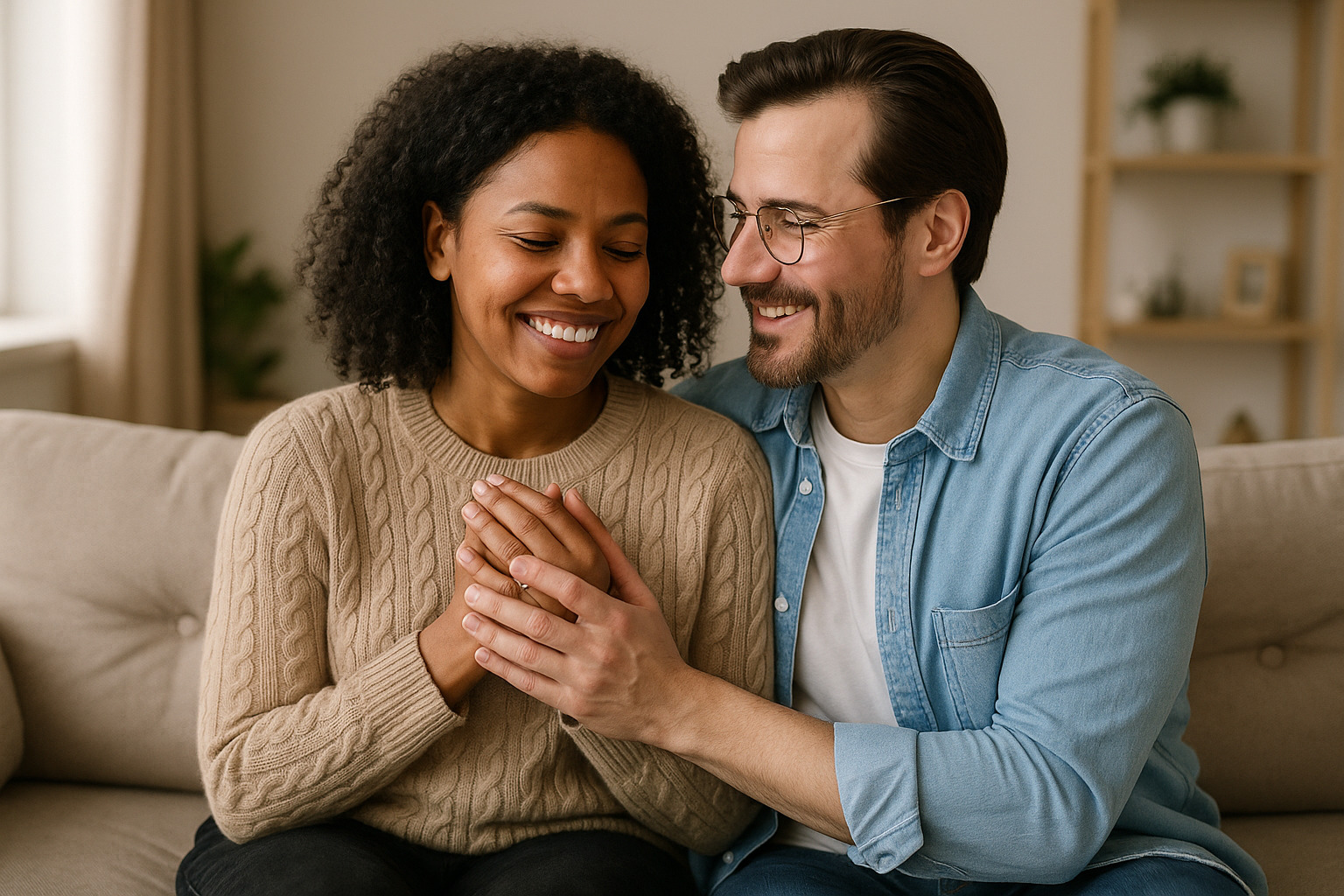Gratitude isn’t just a nice-to-have. It’s the quiet force that transforms how couples connect, communicate, and grow. If you’re wondering whether saying “thank you” or showing appreciation really matters in a relationship, the answer is yes. It changes the tone of interactions, builds trust, and strengthens emotional intimacy.
Why Gratitude Matters
Gratitude builds emotional safety. When someone feels appreciated, they feel seen. When they feel seen, they let their guard down. That’s where deeper connection begins. No couple thrives without acknowledgment. When gratitude becomes part of a relationship’s daily rhythm, it creates warmth that outlasts the hardest arguments and the longest silences.
The Micro-Moments That Count
It’s not about dramatic gestures. It’s about noticing. Did they wash the dishes after a long day? Did they check in when they knew your schedule was packed? Gratitude shines in the smallest acts.
Examples of micro-moments:
- A soft thank-you whispered before sleep
- A squeeze of the hand after a shared laugh
- A message saying “I saw what you did. Thank you.”
These moments cost nothing. Their impact is long-lasting.
How Gratitude Changes the Emotional Climate
- Decreases resentment
Keeping score disappears when appreciation takes the lead. Instead of tallying who did what, the focus shifts to recognizing effort. - Increases emotional generosity
Gratitude encourages giving. When someone feels appreciated, they want to keep contributing. - Shifts perspective
Challenges feel less personal when appreciation runs in the background. You begin to see the person, not just the behavior. - Regulates conflict
Couples who express gratitude regularly tend to argue less destructively. The foundation is stronger. The words are gentler.
The Silent Erosion of Unacknowledged Effort
Nothing chips away at affection faster than being taken for granted. Over time, silence becomes louder than words. Gratitude breaks that silence. It rewires focus from what’s missing to what’s working.
Without it:
- Acts of love start to feel like obligations
- Communication hardens
- Emotional withdrawal sets in
Gratitude interrupts that cycle.
Practical Ways to Show Gratitude in a Relationship
Here’s how to make it part of your daily rhythm without it feeling forced:
1. Speak It Often
Say “thank you” with specifics.
- “Thank you for helping with dinner, even though you were exhausted.”
- “Thank you for always remembering the little things.”
Generic praise fades. Specific acknowledgment stays.
2. Write It Down
A short note. A sticky on the mirror. A text that simply says:
- “I noticed you’ve been doing more lately. I appreciate it.”
- “You handled that situation with our child so well today.”
It doesn’t have to be poetic. Just honest.
3. Show It with Actions
Sometimes actions speak better than words.
- Make their coffee in the morning
- Offer a back rub without them asking
- Handle a chore they usually do
Unspoken gratitude through thoughtful gestures communicates love just as loudly.
4. Practice Reflective Gratitude Together
At the end of the week, ask each other:
- “What was something you appreciated this week?”
- “What did I do that made you feel loved?”
This builds a habit of noticing and voicing it.
How Gratitude Deepens Emotional Connection
Couples often start strong with appreciation. But over time, familiarity replaces wonder. What once felt magical becomes expected. Gratitude brings wonder back. It turns ordinary interactions into meaningful exchanges.
What happens when couples practice gratitude regularly?
- Physical affection increases
- Stress in the relationship reduces
- Mutual respect grows
- Long-term satisfaction improves
It doesn’t take therapy to rekindle connection. Sometimes it takes daily doses of genuine appreciation.
The Difference Between Gratitude and Flattery
Gratitude is truth-based. It focuses on who the person is or what they genuinely did. Flattery tries to impress. Gratitude expresses. The difference is sincerity.
Examples:
- Gratitude: “Thank you for calming me down when I was overwhelmed.”
- Flattery: “You’re always the best at everything.”
One builds trust. The other can feel empty.
Making Gratitude a Ritual
Rituals turn behavior into memory. Choose one or two from below:
- Say one thing you’re grateful for before dinner
- Write a weekly “thank you” letter
- Celebrate small wins together and express appreciation for how you got through it
Rituals ground the relationship in consistency and care.
What to Do If Gratitude Feels One-Sided
If you’re giving and not receiving, speak up with kindness.
Try:
- “I’ve been trying to show more appreciation lately, and I’d love to feel that back.”
- “It really helps me stay close to you when I feel noticed too.”
It’s not about blame. It’s about mutual awareness.
Closing Thoughts
Gratitude is fuel for connection. It doesn’t need special occasions. It thrives in everyday life. It’s not about being overly positive or sugarcoating reality. It’s about pausing, recognizing, and sharing thanks with the person you choose daily.
The strongest relationships don’t ignore struggle. They hold gratitude beside it. And that makes all the difference.
